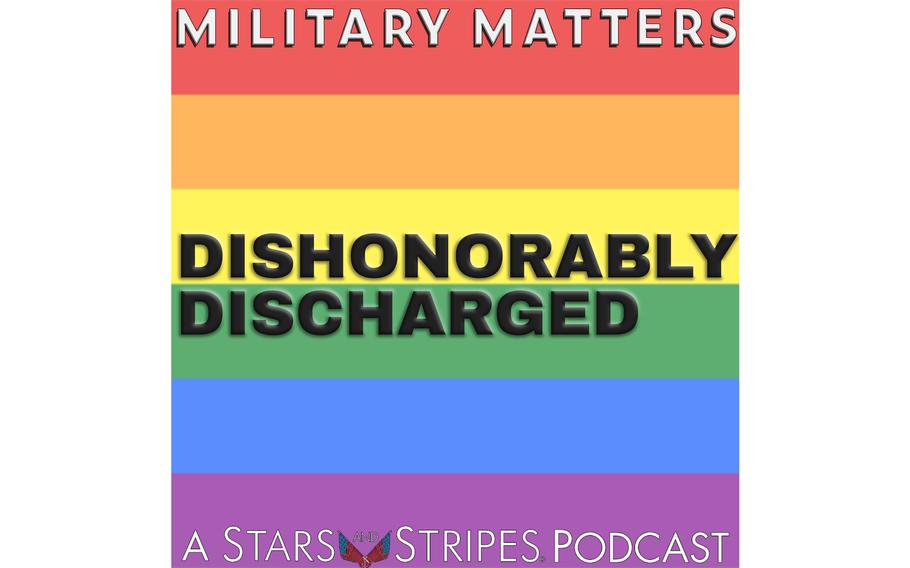
(Stars and Stripes)
More than 11 years after “don’t ask, don’t tell” was repealed, allowing LGBTQ+ troops to openly serve in the U.S. military, veterans who received other-than-honorable or dishonorable discharges due to their sexual orientation are still struggling to have these discharges upgraded.
On this week’s episode of Military Matters, co-host Rod Rodriguez speaks with CBS News’ Chief Investigative Correspondent Jim Axelrod and Investigative Producer Jessica Kegu, who have been interviewing these veterans, many of whom were given dishonorable discharges on trumped-up “cover charges” such as conduct unbecoming an officer or NCO.
At least 29,000 veterans were booted out of the military for their sexual orientation, Axelrod and Kegu recently discovered through a Freedom of Information Act request. These veterans have been unable to collect benefits or even obtain jobs.
“The crucial part of the storytelling here is you have all these numbers, right? And you have regulations and you have a Pentagon engaged in some sort of slow walking of restoring justice to these folks,” Axelrod said. “What really puts the face on all of this are the anecdotal accounts from people like Steve Marose. … Steve did 18 months in Leavenworth (United States Disciplinary Barracks, Fort Leavenworth, Kan.) for being gay. Once you are able to present people's stories like this, other folks want to reach out because there's such … a reservoir of pain and suffering that is part of the gay and lesbian veterans community.”
While the Department of Veterans Affairs put out a statement on the 10th anniversary of the repeal of “don’t ask, don’t tell” asking LGTBQ+ veterans to reach out for help getting their discharges upgraded, the process is difficult and often discouraging. Axelrod and Kegu spoke to Donnie Ray Allen, a Marine veteran who was able to get his discharge upgraded to honorable thanks to some help from his lawyer. But most veterans don’t have the resources to get that kind of help, Kegu said.
“If you have a very simple, very straightforward, like (it) says homosexual conduct, no other mitigating factors, nothing, no coverage charges, nothing else,” Kegu said, “this process might work for you if you get past the exception line. But the vast majority of veterans, that's not how it happened for them. It was always more complicated; it always had mitigating or aggravating factors. And I think that is wherein lies the problem here. … The Pentagon needs to be willing to give very liberal consideration to these individuals, and they need to educate the individual discharge upgrade review boards on what these discharges actually looked like.”
You can find Military Matters on Twitter @stripesmmpod.
Follow Jack Murphy on Twitter @jackmurphyrgr and Rod Rodriguez @rodpodrod.
A transcript of the episode can be found here.
Go to www.stripes.com, use promo code PODCAST and save 50% on your digital subscription.